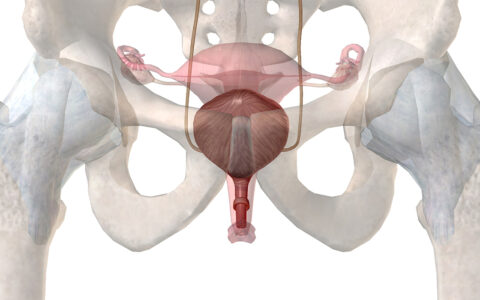When fathers regularly consume fish oil after exposure to dioxin, a toxin that increases the risk of premature birth, their newborn’s odds of preterm birth and its major comorbidity, bronchopulmonary dysplasia, are greatly reduced, according to evidence from a new study.
Both conditions decreased significantly following the fathers’ consumption of fish oil prior to conception in a murine study that appeared in Toxics. In the study, the females were not similarly exposed to dioxin.
“Usually, efforts towards preventing preterm birth and the harms that go along with it are focused on the mom,” said Kaylon Bruner-Tran, Ph.D., a professor of obstetrics and gynecology at Vanderbilt University Medical Center and a coauthor of the study. “It’s so exciting to show that we can prevent disease in the offspring of mice who have had dangerous exposures just by changing their diets. These studies may be relevant to humans with similar exposures through smoking, military service, or through their occupations, just by changing the father’s diet.”
The work may even confer psychological benefits, she acknowledged, noting that when patients come to Vanderbilt’s in vitro fertilization laboratory, the focus usually stays squarely on the mother.
“The dads seem to feel so left out. Now we can tell them that they do make a major contribution to the health of the pregnancy, and that there are things they can do to help with the process,” she said.
Fathers and Placental Quality
Sometimes overlooked in the conception process is the fact that “the placenta is largely derived from the father,” Bruner-Tran explained.
During copulation, the seminal fluid ejected provides nutrients, microbes and enzymes, which ensure that sperm survive for fertilization, and also influence implantation, the intrauterine microbiome and the placenta’s functioning.
A paternal preconception diet including supplemental fish oil leads to a high-functioning placenta, the study’s authors theorize. This, in turn, eliminates the risk of intrauterine growth restriction during the pregnancy and of delayed postnatal growth, both of which improve lung development in newborns.
“It is also likely that a paternal fish oil diet increases the level of fish oil components [i.e. Docosahexaenoic acid (DHA) and Eicosapentaenoic acid (EPA)] in seminal fluid, which may, in turn, contribute to the fatty acids present in the intrauterine environment,” the researchers wrote. Both DHA and EPA play critical roles in the healthy development of an infant’s lungs and other organs, they noted.
In related work, Bruner-Tran helped to develop an organ-on-a-chip device that mimics cellular interactions found in the female reproductive tract and has been used to characterize environmental toxicant exposure risks during pregnancy, including dioxin exposure.
“The dads seem to feel so left out. Now we can tell them that they do make a major contribution to the health of the pregnancy, and that there are things they can do to help with the process.”
Prematurity Disparities Examined
“In 2020, preterm births affected nearly 1 in 10 newborns, and there are stark disparities, with Black infants at far higher risk than white or Hispanic ones,” said Jelonia Rumph, a doctoral candidate at Meharry Medical College, who works with Bruner-Tran and was the first author of the study.
Furthermore, prematurity is the greatest risk factor for an infant’s death, with bronchopulmonary dysplasia representing the most common chronic morbidity in preterm infants. Necrotizing enterocolitis is another major cause of morbidity and mortality in infants, mostly premature ones.
“Members of minority communities and people with low socioeconomic status are prone to live near polluting facilities, landfills or waste incinerators,” Rumph said. “People at risk can’t necessarily do anything about these exposures. You can’t always hop up and leave your community if you live near a landfill.”
Black Americans are also overrepresented in the military, where they can be exposed to toxins in burn pits, for example, she said.
Fish oil costs little and is widely available.
“Taking fish oil is a practical, accessible measure for a person in a low socioeconomic group to take.” Rumph said. “They can get fish oil anywhere. This research and our related studies are efforts to advocate for environmental justice and health equity.”





